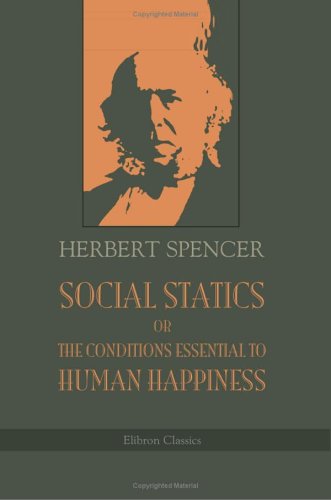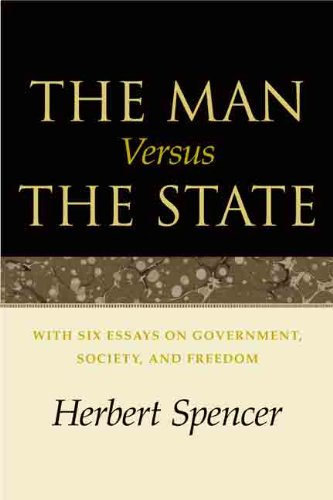Birth and Early Life of Herbert Spencer
Herbert Spencer was born in Derby, Derbyshire, England, on 27th April 1820. His family was of intellectuals and individuals who had earned high ranking and respect in British society. His father William George Spencer was a schoolmaster, a religious dissenter who drifted from Methodism to Quakerism.
His schooling was in progressive teaching methods of Johann Heinrich Pestalozzi. He was also secretary of the Derby Philosophical Society, founded in the year 1783 by Erasmus Darwin (the grandfather of Charles Darwin). Herbert’ s mother was Harriet.
He grew under the tutelage of his parents and his uncle, the Reverend Thomas Spencer, who taught him Mathematics, Physics and Latin. He also taught Herbert free trade and libertarian political thinking.

Books / Works of Herbert Spencer
Herbert was a polymath who contributed to a variety of subjects like anthropology, ethics, economics, politics, philosophy, literature. He couldn’t settle into any single intellectual or professional discipline. He was an a self-taught person who acquired most of his knowledge from reading and conversations with his friends and acquaintances.
Spencer was also educated in empirical sciences and pre-Darwinian concepts of biological evolution of Erasmus Darwin and Jean-Baptiste Lamarck.
He worked as a civil engineer during the railway boom, between 1837 to 1841. During this time, he wrote for provincial journals that were nonconformist in their religion and radical in their politics.
Later he served as a sub-editor on the free-trade journal, The Economist, from 1848 to 1853. He also published his first book, Social Statics(1851) during this time. His second book was Principles of Psychology(1855) which explored a physiological basis for psychology.
Spencer’s interest in psychology was primarily to establish the universality of natural laws. Like his peers, his belief was that it was possible to show that everything in the universe could be explained by laws of universal validity.
This contrasted greatly with the theologians who insisted that some parts of creation, like the human soul, were beyond the realm of scientific investigation. Spencer believed that it was possible to discover a single law of universal application called the principle of evolution.
Later Years
In 1858, he outlined the basis for the System of Synthetic Philosophy which aimed at demonstrating that the principle of evolution applied to these sciences – biology, psychology, sociology and morality. This work of ten volumes took around 40 years to complete, which was almost all of his long life.
Although he struggled to fit in a particular discipline, by 1870s, he had become the most famous philosopher of the age. His works were widely read during his lifetime and were also translated into German, Italian, Spanish and many other languages. He earned a lot from his regular contributions to Victorian periodicals which were articulated into three volumes of Essays.
He earned several accolades and became a member of the Athenaeum, an exclusive gentlemen’s club in London open to those who were distinguished in arts and sciences. Spencer was also a member of the X Club, a dining club of nine, founded by T.H. Huxley. They met every month and included some of the most prominent thinkers of the Victorian era.
Herbert Spencer: Last Years and Death
All these awards and accomplishments failed to provide Spencer with love. He remained unmarried and the last decades of his life were characterized by growing loneliness. After 1855 he became a perpetual hypochondriac who had endless pains and grieves.
With years, his political beliefs started to become increasingly conservative. His book, Social Statics, sympathized with women’s and children’s suffering and was a work of a radical democrat. But by the 1880s, he became a strong opponent of female suffrage. The Man Versus the State, one of his most famous works, expresses his political views for that period.
Although he remained a staunch opponent of Imperialism and Militarism, his views grew towards the conservative side with passing years.
Spencer also invented the modern paper clip which looked more like a modern cotter pin. It was distributed by Ackermann & Company. He has also showcased the drawings of the pin in his autobiography.
Spencer was nominated for the Nobel Prize for Literature in 1902, shortly before his demise. He continued writing throughout his life. He died on 8th December 1903, aged 83, in Brighton, Sussex, England. His ashes are interred in London’s Highgate cemetery.
Herbert Spencer Quotes
Some Famous Works of Herbert Spencer
1)Social Statics(1851)

2)Principles of Psychology(1855)

3)The Man Versus the State(1884)

4)System of Synthetic Philosophy – 10 volumes
5)An Autobiography(1904)

The Man versus the State by Herbert Spencer